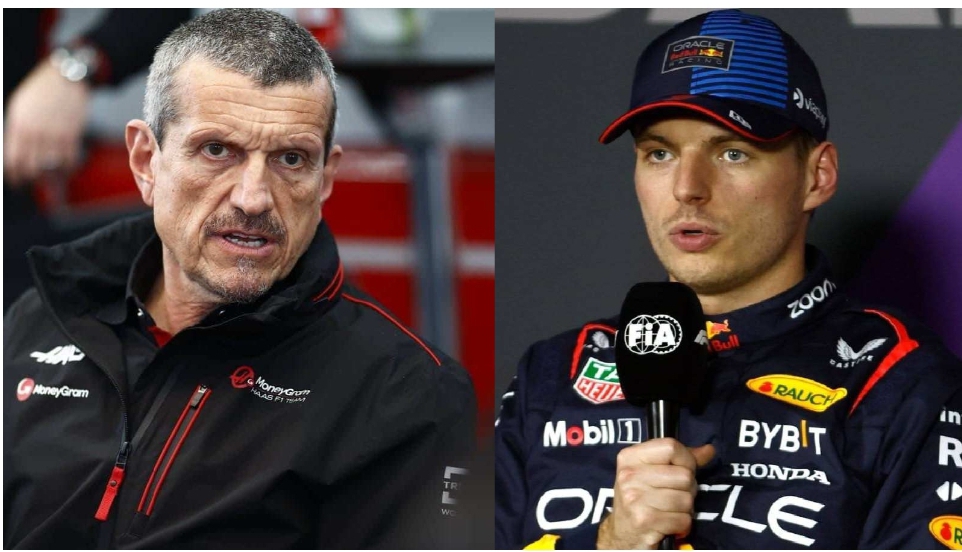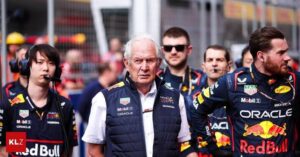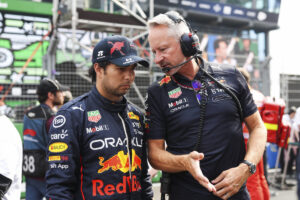Just In: GPDA President Criticizes FIA for Double Standards Regarding……..

GPDA President Criticizes FIA for Double Standards Regarding Language Enforcement
Alexander Wurz, President of the Grand Prix Drivers’ Association (GPDA), has publicly criticized the FIA for what he perceives as a double standard in how they enforce rules around language use in Formula 1. His comments came after Max Verstappen, the reigning world champion, was recently penalized for swearing during a press conference ahead of the Singapore Grand Prix. The FIA deemed Verstappen’s language as a violation of their community guidelines, resulting in a swift punishment.
However, Wurz was quick to point out that similar behavior from others in the paddock, particularly Haas team principal Guenther Steiner, had been celebrated in the past, rather than punished. He specifically referenced Steiner’s frequent swearing on Netflix’s popular series Drive to Survive, where the Haas boss’s blunt, expletive-filled outbursts were portrayed in a light-hearted manner, even earning him a cult following among fans.
In Wurz’s view, the FIA’s treatment of Verstappen’s incident highlights a broader issue of inconsistency within the sport’s governing body. While Verstappen was penalized for a brief moment of frustration, Steiner’s expletive-laden rants were glorified and used as entertainment content in Drive to Survive. Wurz questioned why one figure in the sport could face significant consequences for using bad language, while another was essentially rewarded with increased fame for doing the same.
During an interview, Wurz questioned the rationale behind the FIA’s decision to punish Verstappen so harshly, especially in light of how Steiner’s behavior had been treated. “One of the questions that comes to mind most often is: how many lifetimes would Guenther Steiner have to do community service? He was glorified with his F-word in Netflix,” Wurz remarked. This comment referred to the fact that while Verstappen was slapped with community service as part of his penalty, Steiner has never faced similar consequences despite being known for his colorful language.
Wurz went on to express deeper concerns about what message the FIA is trying to send with this type of punishment. He argued that by coming down hard on Verstappen for a minor infraction, the FIA is risking alienating drivers and fans alike, while also appearing to be inconsistent in their application of rules. “So in that respect, you ask yourself, what is really the message? What is behind it?” Wurz asked.
The GPDA president emphasized that the punishment Verstappen received seemed disproportionate compared to other incidents that have been overlooked. “It is simply too harsh a punishment,” he said. Wurz’s comments reflect a growing sentiment among drivers and teams that the FIA’s enforcement of rules has become erratic, and that they need to provide clearer guidelines and apply them more uniformly.
Wurz’s critique also touches on the significant role that Drive to Survive has played in shaping public perception of Formula 1. The Netflix show has been credited with attracting a new wave of fans to the sport, particularly in the United States, but it has also drawn criticism for its sometimes exaggerated and dramatized portrayal of events.
Guenther Steiner, who has become one of the most recognizable figures on the show, is often shown in moments of high tension, frequently swearing and berating his team members. While this has made him a fan favorite, Wurz questioned whether it’s fair for the FIA to allow this type of language to be celebrated on a major platform while punishing drivers like Verstappen for much less severe infractions.
In the wake of the Verstappen incident, Wurz has called for the FIA to reconsider how they enforce their rules and to ensure that all members of the Formula 1 community are treated fairly. He noted that while it’s important to maintain professional standards, the governing body must also be mindful of how their actions are perceived by both the drivers and the public.
Wurz’s defense of Verstappen also raises broader questions about how Formula 1 handles the emotional side of the sport. Racing is an intense, high-pressure environment, and moments of frustration are inevitable. The GPDA president argued that rather than imposing harsh penalties for occasional outbursts, the FIA should focus on fostering an environment where drivers feel they can express themselves without fear of disproportionate punishment.
As Formula 1 continues to grow in popularity, particularly with younger audiences, the balance between maintaining professionalism and allowing drivers to show their personalities will be crucial. Wurz’s comments reflect a desire for the FIA to take a more measured approach when it comes to enforcing their rules, ensuring that all participants are held to the same standard.








